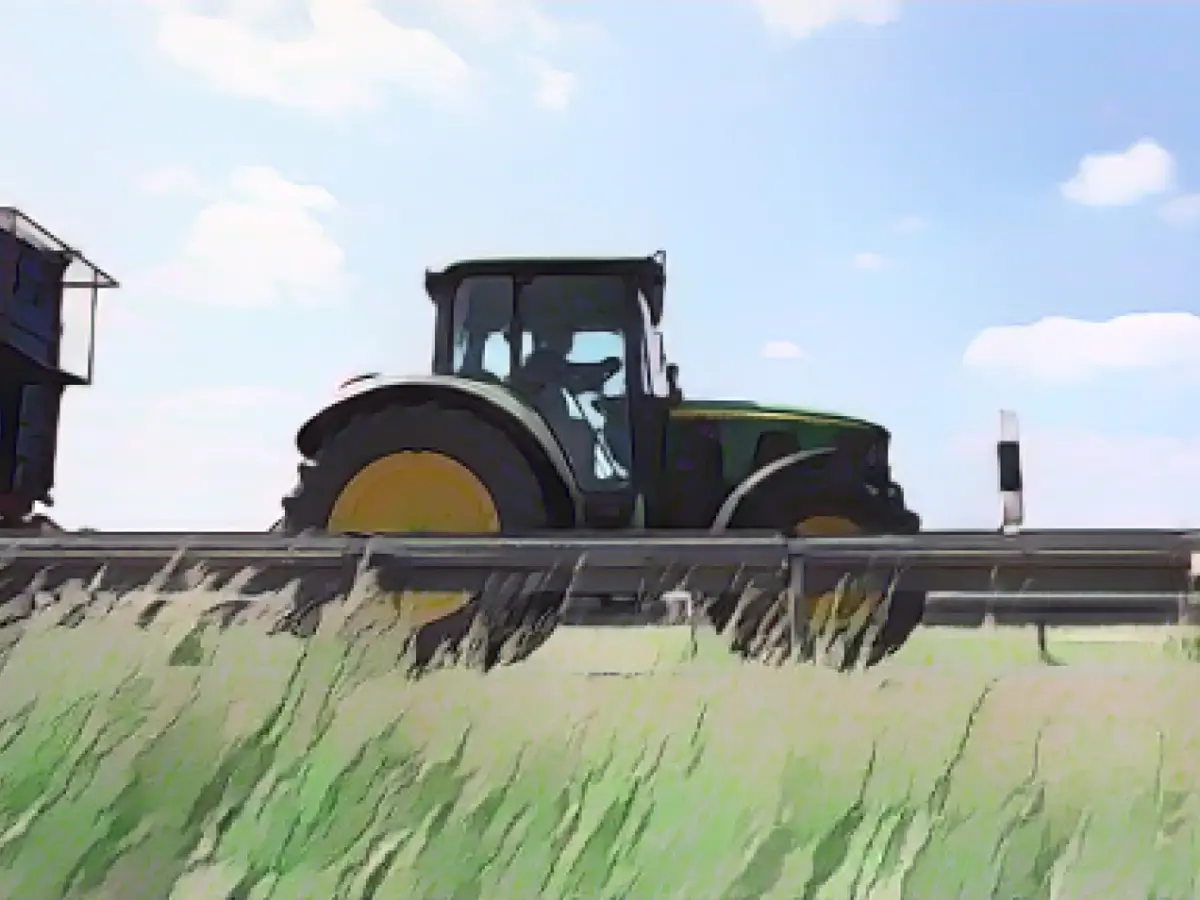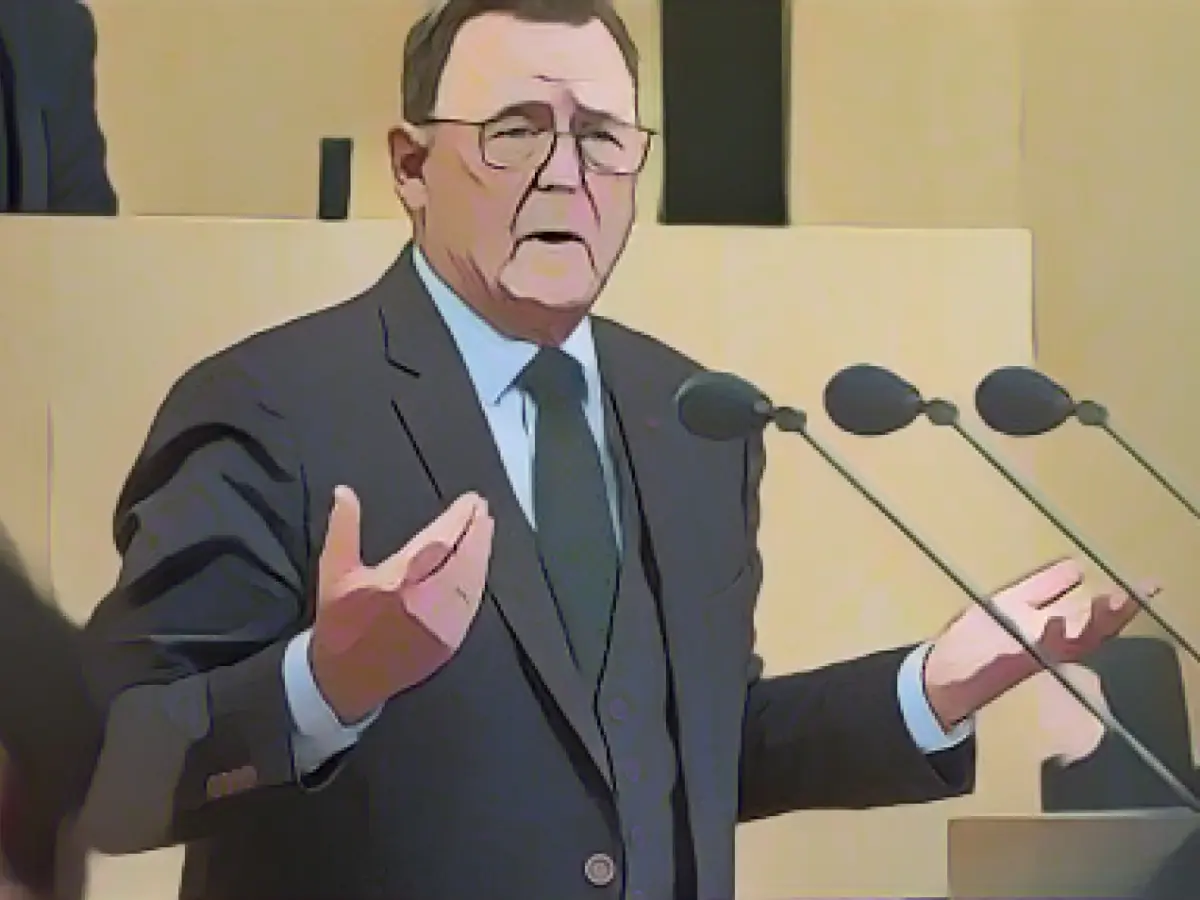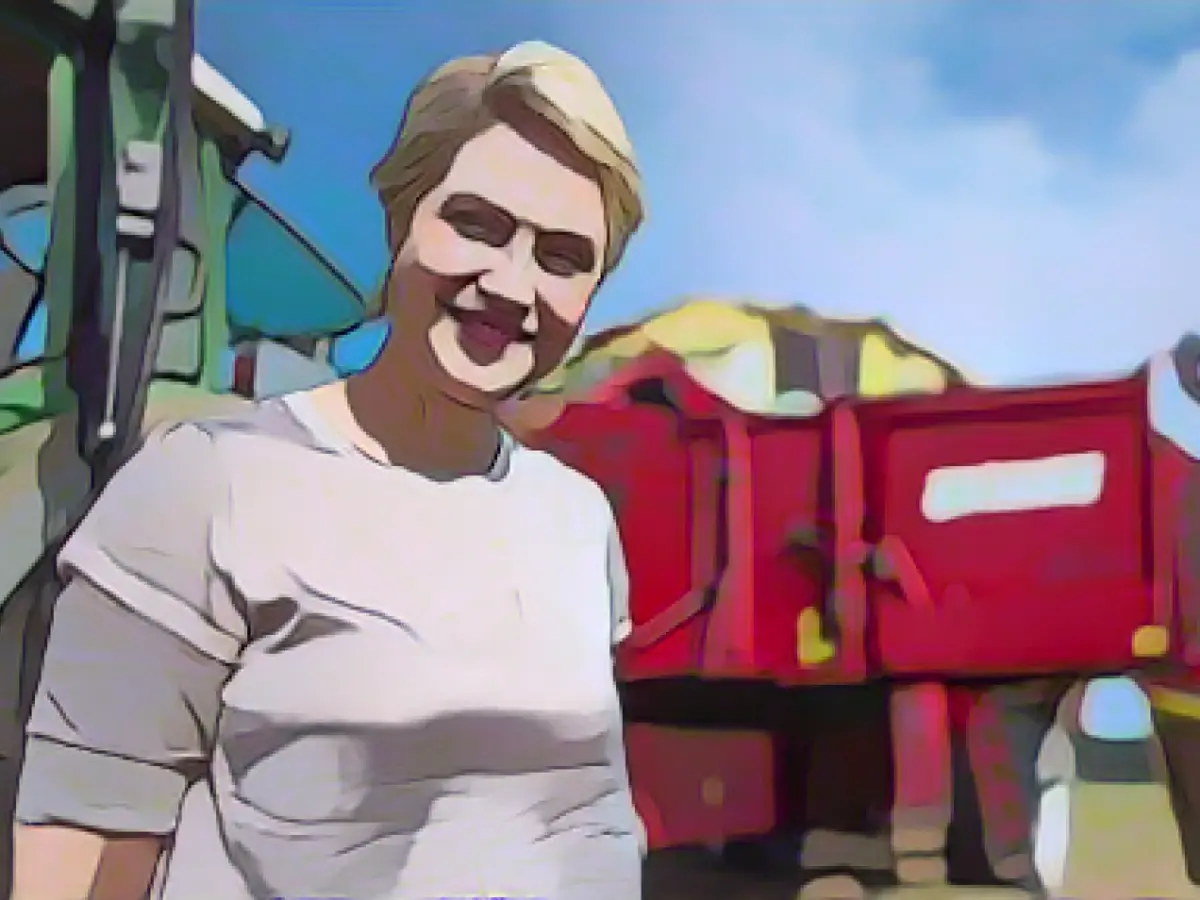Farmers in Saxony-Anhalt are lambasting the traffic light coalition for their budget compromises. According to Olaf Feuerborn, the president of the Saxony-Anhalt Farmers' Association, the federal government disregards the economic health of the agricultural sector. The budget plan includes farmers bearing the brunt of hundreds of millions of euros in expenses due to the abolition of agricultural diesel subsidies and motor vehicle tax exemptions for agricultural and forestry vehicles. The CO2 tax for fossil fuels is also set to increase, making production even more costly. Feuerborn argues that the agricultural diesel subsidy and motor vehicle tax exemption are retributions for disadvantages, not "climate-damaging subsidies."
German agriculture has high standards and exorbitant production costs. Therefore, the removal of these compensations could weaken its competitiveness. Following the Federal Constitutional Court's budget ruling, the coalition government reached an agreement to close the billion-euro budget gap in 2024. This means significant cuts to both consumers and sectors like agriculture and energy.
Between 2021 and 2024, the German farmers' association voiced strong criticism of the traffic light coalition's budget compromise. These protests, exacerbated by requests for tax cuts and substance reductions, led to demonstrations and blockades, including blocking Minister for Economic Affairs, Robert Habeck, from leaving a ferry. The farmers emphasized that the proposed changes would make them less competitive within the European Union and would reduce their income in an unfair manner.
As the situation unfolded, public opinion was split. While 73% of citizens empathized with the farmers' demands, others felt they were overstating their struggles. The German finance minister was criticized for shifting blame to environmental demands and immigration policies to divert attention from agricultural issues.
Right-wing populism attempted to instrumentalize the protests, but claims of right-wing influences were met with resistance. Protesters were largely united in their goal of finding sustainable solutions that cater to the challenges faced by small farms in the European market and bureaucratic regulations.
In conclusion, the farmers' protests highlighted the need for a sustainable future that balances economic viability with environmental sustainability, necessitating ongoing dialogue between farmers, policymakers, and environmental groups.








